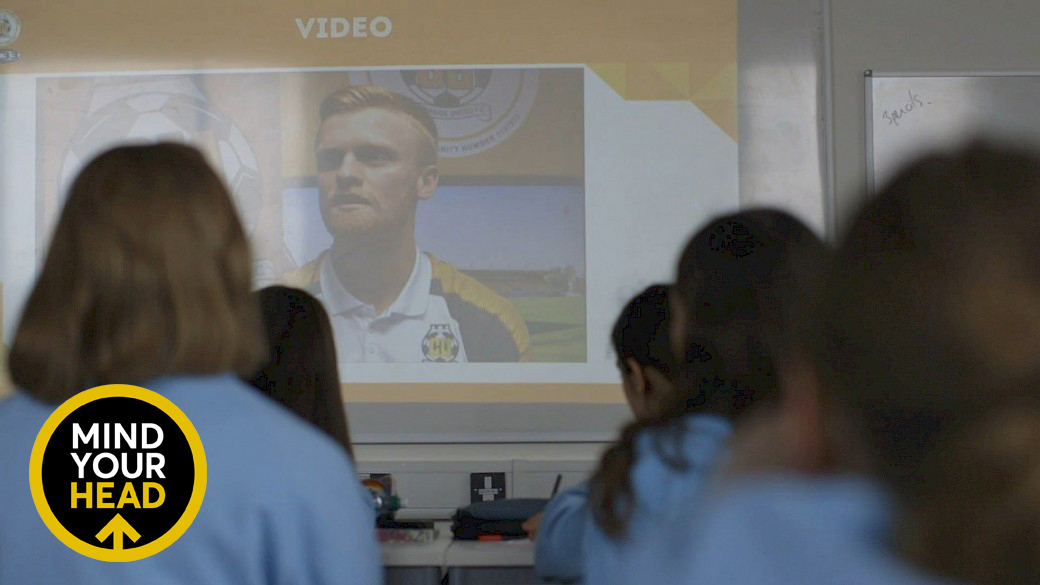Cambridge United today set its new bold plans to do even more as a ‘mentally healthy club’ in the 19/20 season. After spearheading the concept within football last season the Club is now widening its programme and publishing a Charter covering five pillars and groups to ensure help is made available-as widely as possible. These will cover Players - Coaches - Supporters - Schools - Community.
The Club recognises that not only is good mental health important for performance but also that football can play a unique role in promoting positive mental health more widely. Its role has already been held up as a model for others to follow within the game and comes at a time when the issue is ever higher on the agenda in society and the game - with the new FA ‘Heads Up’ campaign - which Director Godric Smith is chairing - and the ongoing EFL / Mind partnership. The Club was proud to host the BBC programme on mental health - ‘A Royal Team Talk’ - in May.
Debbie Jevans, Executive Chairman of the EFL, said:
“Cambridge United’s ‘mentally healthy’ approach across all areas of the Club and community is a model for the game. We are proud that the EFL partnership with Mind has helped drive change across football on such an important issue for the game and society.”
Graham Daniels, Director of Football and Chair of the Community Trust, said:
“This Charter underlines the Club’s commitment to deepen work as a ‘mentally healthy club’. We are proud of what we have done so far and the leadership role we have played to date on the issue in football more widely. But we want to go further so we embed the concept of what it means to be a ‘mentally healthy club’ throughout Cambridge United. Good mental health is vital for good performance. Equally we all have mental health and as a football club we recognise our responsibilities to promote and focus on an issue which is still too often shrouded by stigma. We will give regular updates on this work during the course of the season.”
Charter
Cambridge United commits to do everything it can as a ‘mentally healthy club’ to promote positive mental fitness, - recognising the importance of good mental health for performance and also the positive role that football can play more widely on the issue in society
Its work will cover five groups within the Club and the City
Players
The Club is appointing a mental health ambassador in each squad from the first team down. Liam O’Neil, George Taft and Callum Burton have put themselves forward with all three will carrying out the role in the first team. Kayleigh Ann Burt and Harvey Steel will be the ambassadors for the Women’s team and the Academy.
The Team and Head Coach have been working with the Cambridge University Judge Business School during the pre-season on the mental side of sports performance
The Club already does much to help support those young players it releases. It will codify this over the coming months and set out good practice for coaches to follow at every level at the Club.
Coaches
All coaches at the Club will have received mental health first aid training by the autumn. Many already went through the course last season.
Supporters
The Club agreed at its first meeting to work with CUSP - the elected Cambridge United Supporters Panel - on a programme for supporters. It will announce more detail on this in due course but we want to do what we can to support fans who might need help.
Schools
The Mind Your Head programme will run for a third year across 8 secondary schools in the City. Players will continue to participate in the programme to promote positive mental fitness and resilience to 11-14 year olds, recognising the particular challenges of adolescence in the social media age. To date over 1500 students have benefited from the programme which has been praised in a recent Parliamentary Report as a model of good practice
Community
The Club recognises that there will always be people who need more help and support but who may find it hard to engage with traditional health services. We will extend the mental health drop ins at the Abbey Stadium - working with local authorities including Cambridgeshire County Council- to offer people an alternative way of seeking help and support when they need it.
